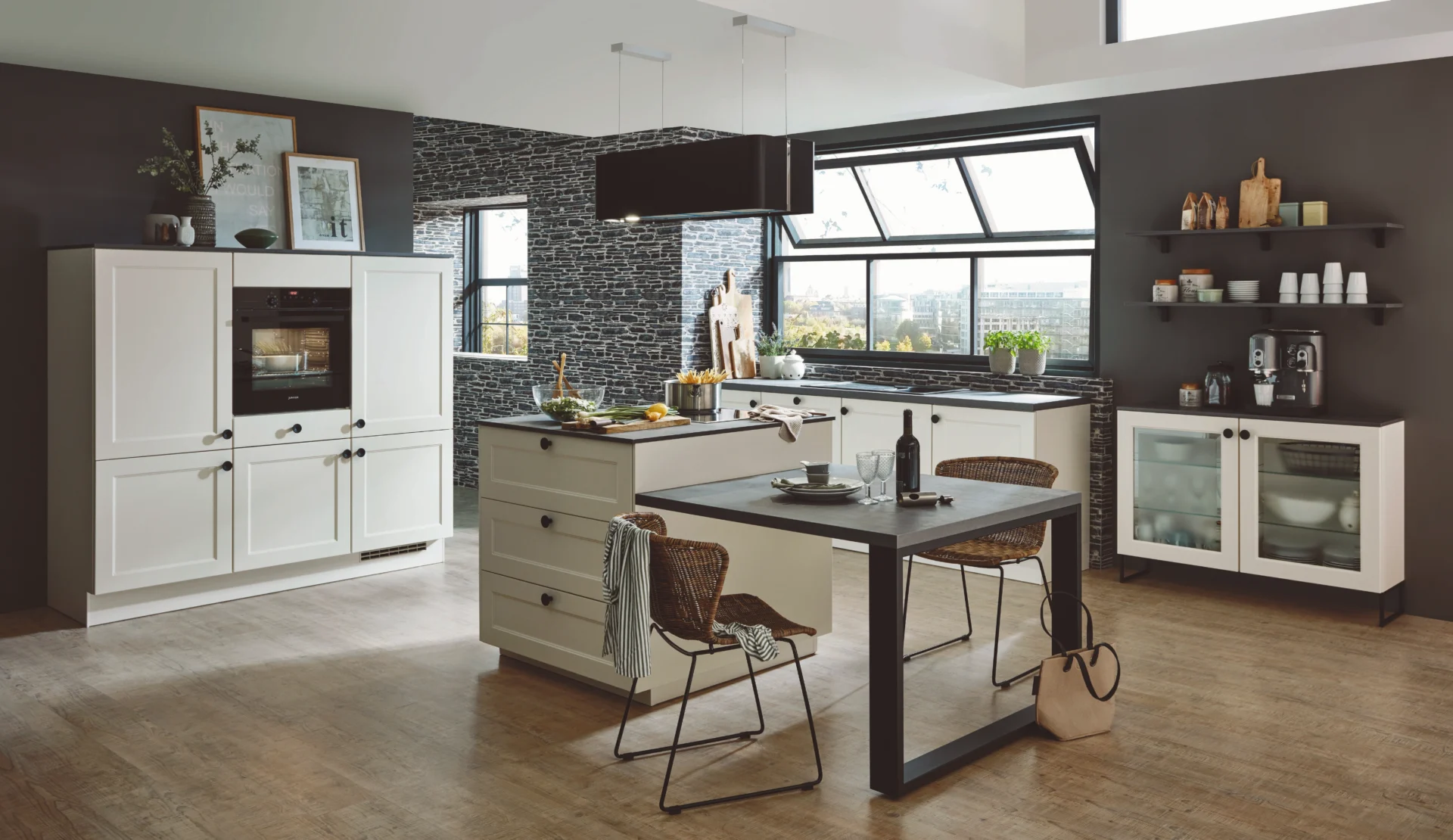Having a space in the kitchen where we can do other activities besides cooking can make our routine much easier. For this reason, office-style bars They are practical items that are increasingly used in the kitchen.
In today's article, we're going to look at the concept of kitchens with office or kitchen bar office style, as well as the different types of kitchens with offices that exist.
A kitchen with a breakfast nook is a kitchen which includes a space for eating or performing daily tasksThis space is often used for breakfasts, casual meals, or even occasional work. It typically includes a table and chairs or a bar with stools, creating a more functional and comfortable environment within the kitchen.
This concept is common in homes where the aim is to make the most of the space and facilitate coexistence, as it allows cooking and sharing moments without having to move to a separate dining room.
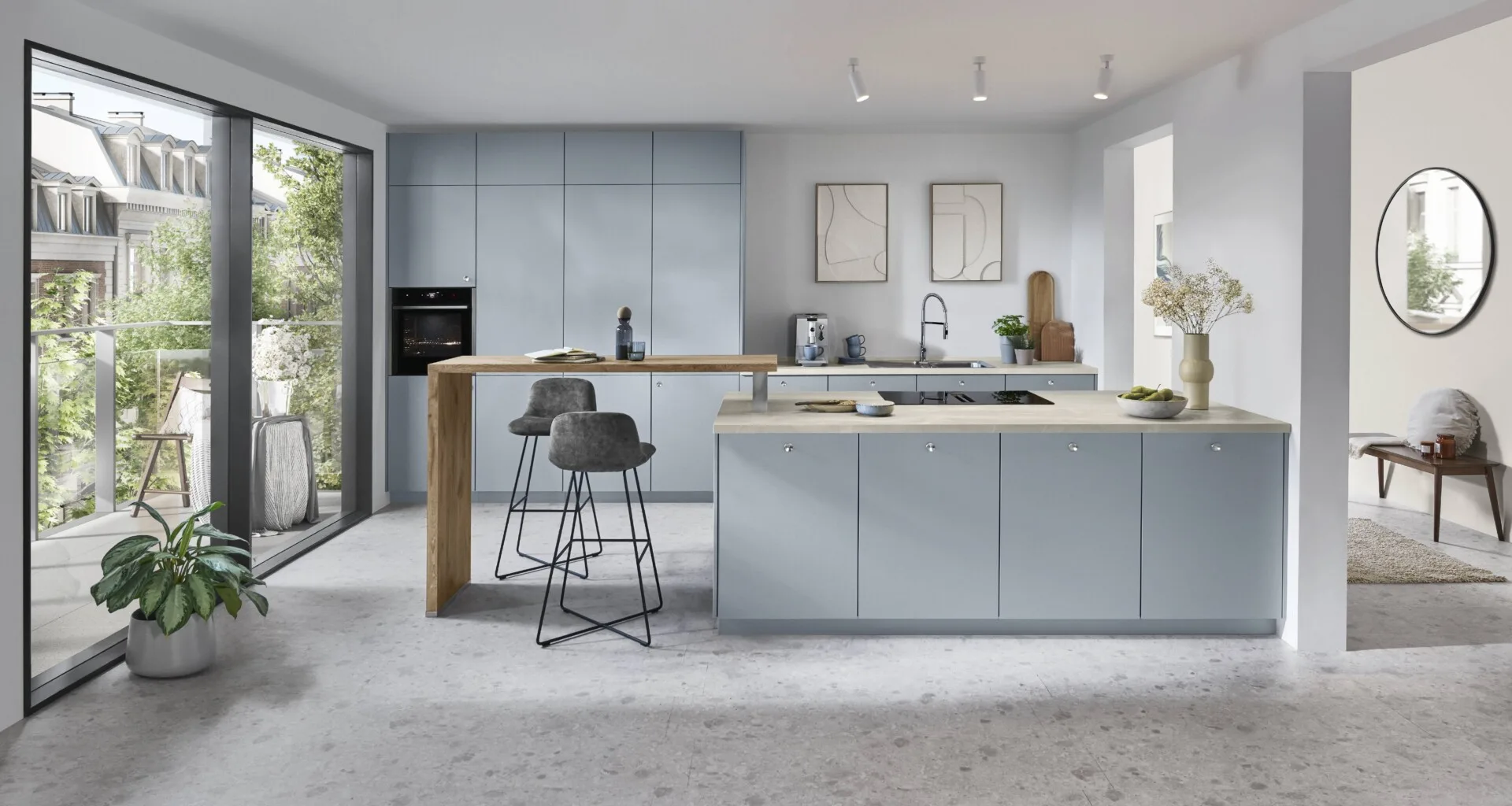
Integrating a breakfast bar into a kitchen with an island can be a perfect way to gain workspace and redefine the room. To do this, we would need to.. Custom-made kitchen island. Remember that at Cocinas Plus we design custom kitchens.
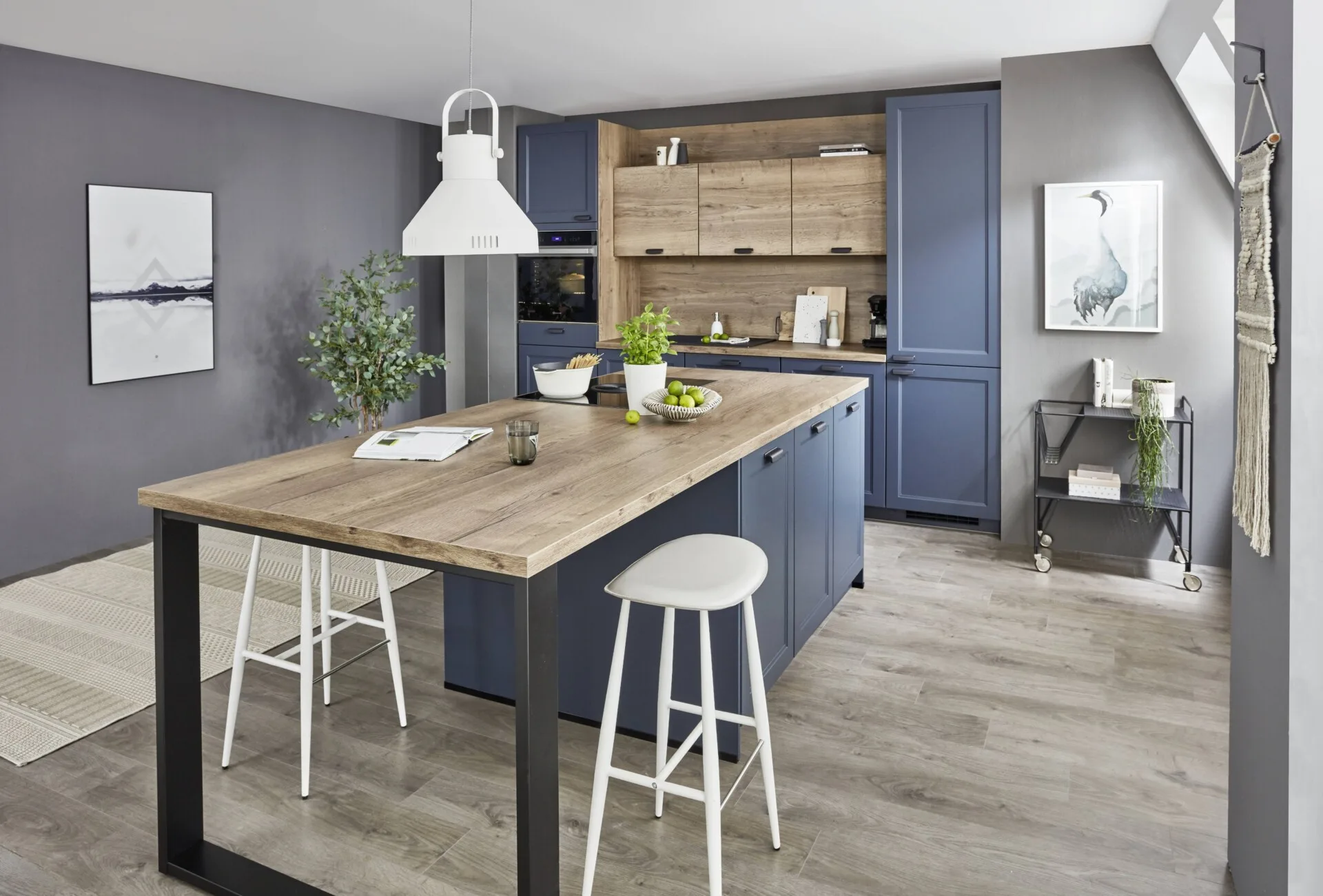
The office bar isn't just for large kitchens. It can also be added to.. small, narrow and long kitchensFolding or collapsible office bars are a perfect option to save space in a small kitchen, incorporating a practical element that can be used for working at specific times or even as a dining area.
In the case of a narrow kitchen with a parallel configurationAn office-style bar can be added to one of the two sides, accompanied by high or low chairs depending on the need.
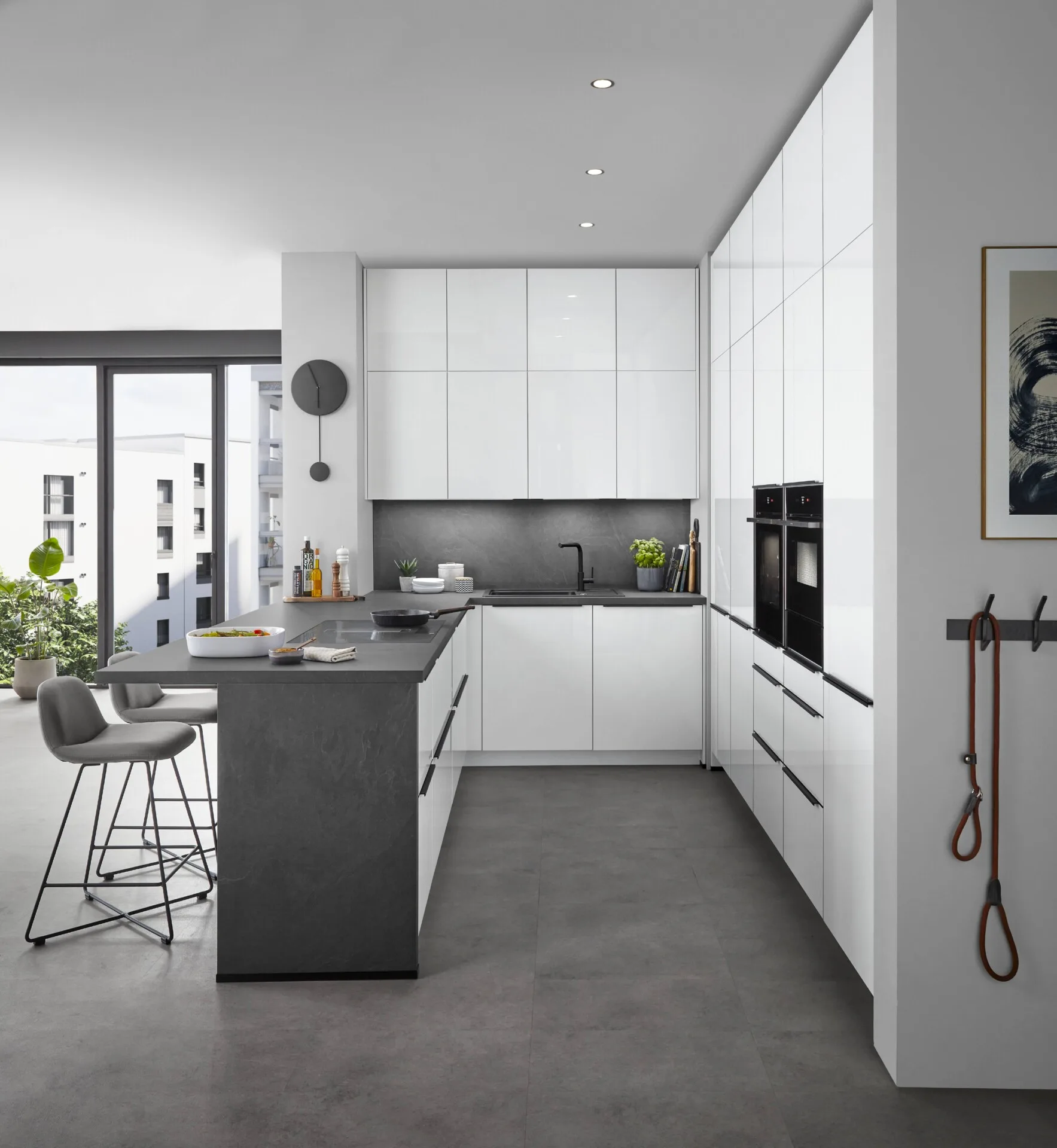
It is one of the configurations that can best adapt to a kitchen. Any type of kitchen layout can be suitable for adding an office-style peninsula.
By applying this model, kitchens with a single front or in an L shape can also be suitable for adding a kitchen peninsula, allowing for modification of their configuration. In other words, kitchens with a front + office bar can be converted into L-shaped kitchens, and L-shaped kitchens + peninsula can be converted into U-shaped kitchens.
Under this configuration, adding a peninsula to a kitchen island could also work, creating an extension above it to gain a little more workspace.
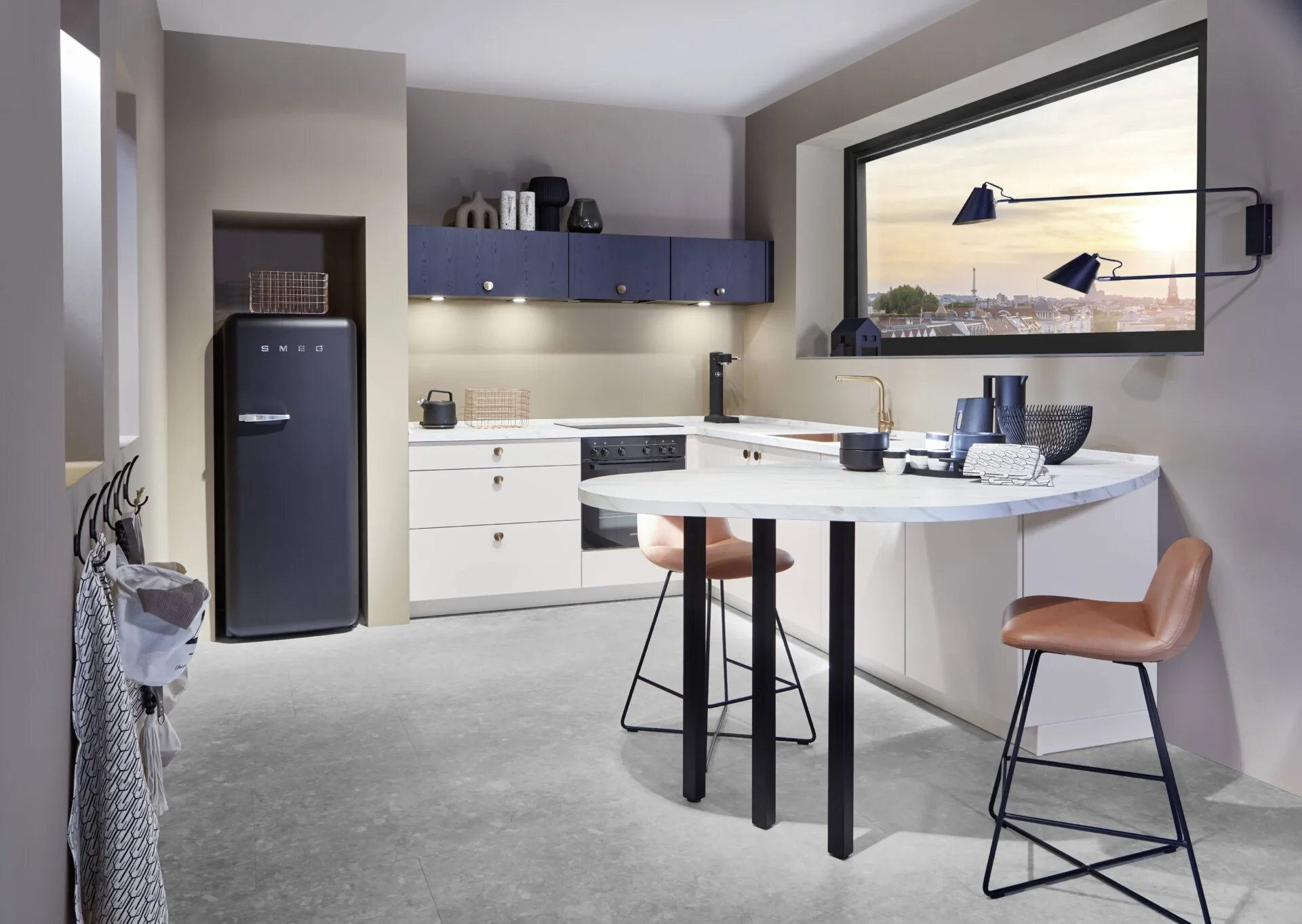
If you don't want to add an office toolbar, there's always the option of add a a table that can serve as our dining room and be able to use it as an office suite as well.
Although adding a table is not as practical as a bar, since it takes up more space and would be more suitable for larger kitchens.
